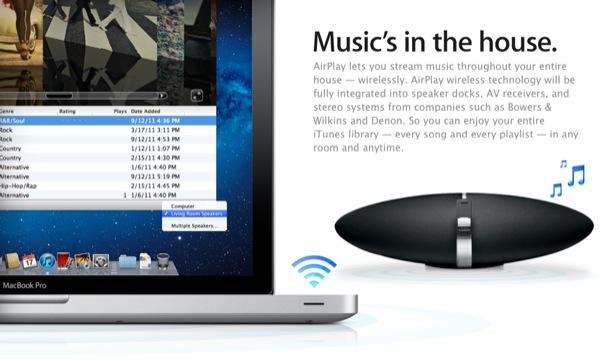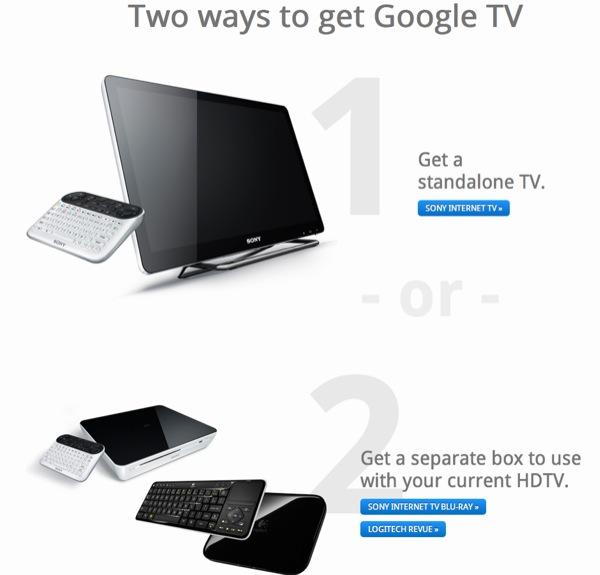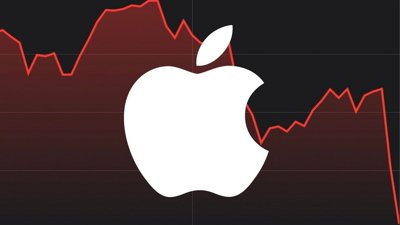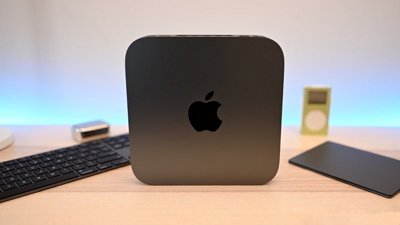Citing sources familiar with the project, The Wall Street Journal reports that the internet search giant's Android mobile platform division has led a "multi-year effort" to develop the system, which is rumored to launch sometime this year.
Thus far, Google has concentrated on developing the software that powers partner Android device makers' hardware, like Samsung's Galaxy line of phones or Google TV products branded by Sony and Logitech.
The proposed wireless system could mark the start of a new era for the company where, much like Apple, it will develop an ecosystem of Google-designed and branded software and hardware.
According to the sources, the system will stream music from Google's online music store to Google-branded speakers or other WiFi-connected devices and can be controlled using a smartphone or tablet, akin to Google TV. However, the device or devices are meant to be a system solution and not just a set-box or integrated TV component made by an outside vendor.
The product described smacks of Apple's AirPlay wireless system, which connects iOS devices and computers running iTunes to Apple TVs, third-party stereos and other enabled devices to stream music and video. Non-AirPlay capable products can also stream audio via output from the company's AirPort Express base station.
While Apple relies on iOS, iTunes and other proprietary software and third-party hardware to power AirPlay, Google will reportedly use a version of its Android platform to do the same.
Apple AirPlay featuring an enabled B&W Zeppelin Air speaker dock. | Source: Apple
Some app developers have bemoaned the Android operating system's fragmentation as many OEMs make tweaks to the software, and was at one point such an issue that Google had to implement stricter "non-fragmentation clauses" to remedy the situation.
The problem of fragmentation is essentially a non-factor for companies that are in control of both the software and hardware facets of product creation. Google could possibly be looking for that level of consistency with the rumored product line.
With its new system, Google hopes to undercut competitors like Sonos, a wireless entertainment system pioneer that focuses solely on streaming music.
Sonos cofounder Tom Cullen notes that from a financial perspective, the idea of relying only on music streaming services would be a misstep for Google.
"I'd be stunned if they actually thought it was worth it, because it's peanuts for them," Cullen said of possible revenue from the venture. Cullen's company managed $200 million in sales last year, compared to Google's $38 billion.
However, the rumored product could indeed support more than just basic audio by leveraging the Android-based Google TV to stream video as well.
Google's purchase of Motorola Mobility may also yield helpful patents such as "Televation," which allows users to rebroadcast live video content to other devices in the home.
It is unclear how Google intends to market the system, and no estimated was given as to a possible launch date.
 Mikey Campbell
Mikey Campbell




-xl-m.jpg)



-m.jpg)






 Chip Loder
Chip Loder
 Christine McKee
Christine McKee
 William Gallagher
William Gallagher
 Amber Neely
Amber Neely
 Malcolm Owen
Malcolm Owen
 Andrew Orr
Andrew Orr



-m.jpg)






41 Comments
In true Google fashion, the home entertainment system will reportedly enhance the viewing experience by overlaying its own, targeted ads, along with existing ads in program material. Viewing habits will be integrated with other Google monitoring data to improve the relevance of these ads, with the ability to opt-out of pornography.
A future update to the system is expected to monitor room occupancy and home occupancy, identify family members and guests, greet them upon their arrival, bid them adieu, and note their activities on their respective Google+ accounts.
Welcoming GoogleShare, GoogleMatch and GooglePlay. Revolutionary products based entirely on Apple's similarly named services except for some minor differences as outlined in the previous post. Next up Google Express an Google Extreme which will facilitate these services in a revolutionary and open manner.
In true Google fashion, the home entertainment system will reportedly enhance the viewing experience by overlaying its own, targeted ads, along with existing ads in program material. Viewing habits will be integrated with other Google monitoring data to improve the relevance of these ads, with the ability to opt-out of pornography.
A future update to the system is expected to monitor room occupancy and home occupancy, identify family members and guests, greet them upon their arrival, bid them adieu, and note their activities on their respective Google+ accounts.
I know you're being facetious, but you probably aren't far from the truth.
The most information Google knows about you the better. Things like what you search for, listen to and watch on TV, the emails you write and your location and movements all add up to to allow Google to target ads at you more accurately.
Welcoming GoogleShare, GoogleMatch and GooglePlay. Revolutionary products based entirely on Apple's similarly named services except for some minor differences as outlined in the previous post. Next up Google Express an Google Extreme which will facilitate these services in a revolutionary and open manner.
It's probably not fair to give Apple too much credit on this one. The guys at Sonos have been doing this for years.
The wireless music system streaming from Google Music sounds a lot more like Sonos + Pandora/Rhapsody/Spotify than anything Apple do.
I know you're being facetious, but you probably aren't far from the truth.
The most information Google knows about you the better. Things like what you search for, listen to and watch on TV, the emails you write and your location and movements all add up to to allow Google to target ads at you more accurately.
It's probably not fair to give Apple too much credit on this one. The guys at Sonos have been doing this for years.
The wireless music system streaming from Google Music sounds a lot more like Sonos + Pandora/Rhapsody/Spotify than anything Apple do.
You are wrong. Apple innovated and popularized those
Google is soooo original these days ... Not. What ever happened to Google Labs and innovation? They will be changing their name to Pomme next!